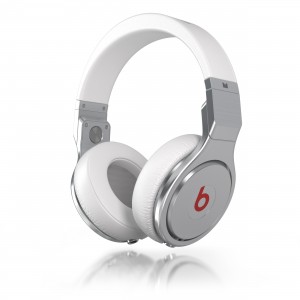Apple Inc. (NASDAQ:AAPL) has declared the Beats app to be an official “App by Apple,” according to the Cupertino company’s website, marking the full transition of Dr. Dre’s company to an organic part of the purchasing enterprise. The Beats icon now resides alongside iPhoto, Numbers, iMovie, iBooks, and Apple Store, among others, as part of Apple’s proprietary set of apps. The streaming music service is apparently due to remain separate from iTunes for the nonce.
Beats represents a new approach for Apple, and is a seeming attempt to tap into the same massive streaming music market that has proven so lucrative for Spotify. The service is available for a $9.99 per month or $99.99 per year subscription, which gives the subscriber unlimited streaming access to a current library of 20 million different tunes. According to AppShopper statistics, Beats is now the 4th most popular music app and the 23rd most popular free app.
 These immense gains in popularity appear, on the surface, to confirm Apple’s wisdom in acquiring the music company. However, an unpredictable circumstance might scupper the California company’s plans for its new acquisition. Music royalty fees may soon change, depending on whether Broadcast Music, Inc. (BMI) and the American Society of Composers, Authors, and Publishers (ASCAP) can strongarm the Justice Department into changing the law.
These immense gains in popularity appear, on the surface, to confirm Apple’s wisdom in acquiring the music company. However, an unpredictable circumstance might scupper the California company’s plans for its new acquisition. Music royalty fees may soon change, depending on whether Broadcast Music, Inc. (BMI) and the American Society of Composers, Authors, and Publishers (ASCAP) can strongarm the Justice Department into changing the law.
These two organizations are seeking the repeal of a sixty year old anti-monopoly law that declares songs must be licensed to any company willing to pay a “reasonable” royalty in exchange. Radio stations must currently pay 1.7% of revenues as royalties, while streaming services are apparently supposed to pay 1.85% to the industry. Removing this rule would allow music promoters and IP holders to refuse to license music, and to set their own royalty rate.
On-demand streaming services, however, actually end up paying over half of their revenues already due to an additional charge for sound recording rights. This means that approximately 47% margin is the best a streaming service can hope to achieve, and this is before all other expenses are accounted for.
If the law is reversed and BMI and the ASCAP gain the power to dictate availability and royalties, this could prove highly damaging to Apple (AAPL). The profitability of the streaming music industry could be gutted, and Beats’ value to its acquiring company greatly reduced. Apple is noted for eschewing properties that fail to generate solid margins, and so Beats might be transformed into a liability by an essentially unpredictable legal event.



